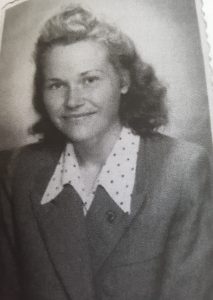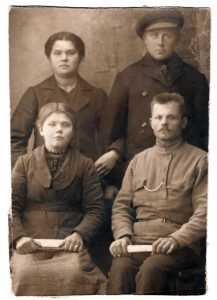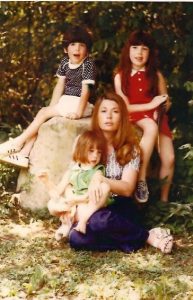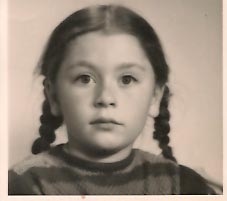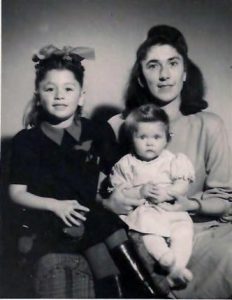Aviva Tkatsch Sandler
My father was one of the five children of Leib and Rhoda Tkatsch. Isaac, the oldest, had emigrated to Mexico at the age of 17, and Pesach, the youngest, had been killed in Palestine while guarding a Jewish settlement. Moshe, Sarah, and my father Benesh remained in Kaunas. My maternal grandmother, Emma Efron, was originally from Vilnius. She had a brother who had moved to Shanghai and a sister living in Sweden; I believe that she moved to Kaunas and was waiting to hear from her sister about emigrating to Sweden. In Kaunas, she met and married my grandfather. They had two children, my mother Riva and my uncle Shmuel. Mother was 4 years old when my grandfather died and my grandmother went to work in a textile store to support the family. There were no other family members in Kaunas, and it was a very difficult and isolated life for the three of them.
Father, who was ten years older than my mother, had been educated as an attorney, but went into business as a textile importer. He met my mother when she was 14; she lied about her age, and by the time he found out that she was so much younger, they had developed an attachment. He took her under his wing, introduced her to the Maccabi sports group, helped her with her homework, and became her mentor and eventually her husband. My parents were married at the end of May 1941. Grandmother Emma had remarried just before my mother and father were married, her second husband and his four sons did not survive the war.
Mother said that she and Father were on their honeymoon at a cottage in the country and heard that the Germans were about to occupy Lithuania. They quickly returned to Kaunas to be with the rest of the family. In the ghetto they moved in with father’s family. Many people were living at close quarters; I think it was very difficult for my mother to live with so many people.
When she discovered she was pregnant with me, it was a mixed blessing. I was born on 4 March 1942. It was spring and my Zionists parents gave me the hopeful name of Aviva (‘Aviv’means ‘Spring’ in Hebrew).
There were many ‘actions’ when children were taken. My aunt Sarah and her child were taken during one of these ‘actions’ and never heard from again. My parents told me that there was a hiding place made under a sofa, big enough for my mother and me, and when there were rumours of ‘actions’, we were hidden there. I have no idea how my mother kept me quiet for hours, but I know that now I panic if I have a blanket over my face. We lived like this for two years.
As time went by, it became increasingly clear that over time all the Jews were going to be killed; it was imperative for my parents to get me out. I remember my parents telling me that they had a discussion about what would happen if they did not return for me. Wouldn’t it be ironic if I were raised to be an anti-Semite? Of course, the desire to save me won out, and they began to look for someone who could be trusted to save a Jewish child. They found a woman who was willing to take me. She ran a boarding house for college girls in a nearby town. I was sedated, placed in a sack and loaded into a wagon under a pile of hay. When I found myself in a strange place, with people speaking a foreign language, I was very upset and cried and raged. Since there was a lot of coming and going in the house, the woman, Letulene, became frightened. Assisting Jews was punishable by death and she felt she had to find another place for me to stay because everyone in the house was in danger.
She gathered some of the girls together and told them that she would take me to a field at a certain time and leave me there. She pleaded that one of them should take me and find a safe place for me; she did it in this manner because she did not want to know who took me and where I went. That way, if she were interrogated, she would have nothing to tell the Germans. One of the girls (or maybe more than one) came to the field, and she took me home to her family’s farm. When she appeared with a child, her parents said to her, ‘Do you know what you have done to us? You have put all our lives in jeopardy.’
However, they were kind people and took me in. I came with very few things: an unusual plaid blanket that my father had brought back from one of his trips to England, a few clothes, a hairclip that my mother had created out of different coloured electric wires, and a picture of my parents. Having been given away twice, I was traumatized and very meek for a while. At that time I only spoke Yiddish, but learned to speak Lithuanian very soon. I was fortunate in those circumstances to have blondish hair, small features, and green eyes. I was introduced to the community as some distant relative, christened Vitute, and connected to these very loving and brave people. I called the woman ‘Mamyte’.

